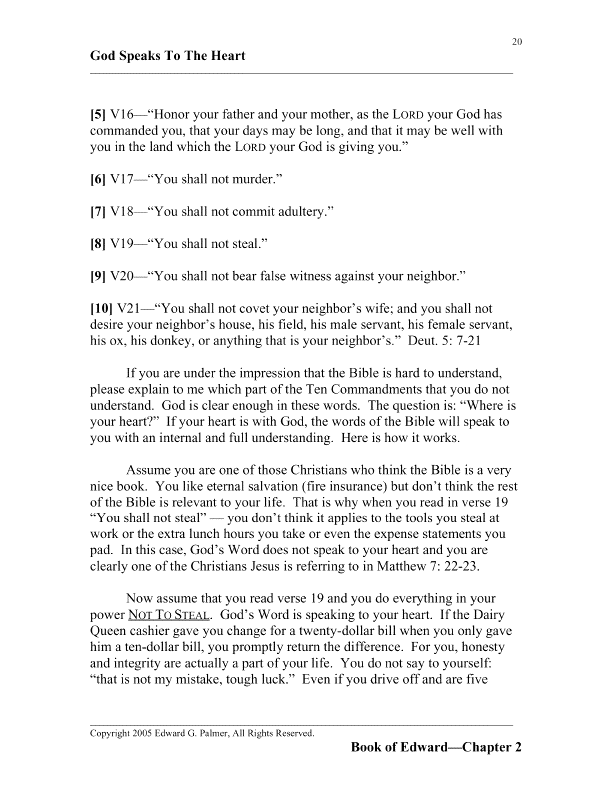[6] V17—“You shall not murder.”
[7] V18—“You shall not commit adultery.”
[8] V19—“You shall not steal.”
[9] V20—“You shall not bear false witness against your neighbor.”
[10] V21—“You shall not covet your neighbor’s wife; and you shall not desire your neighbor’s house, his field, his male servant, his female servant, his ox, his donkey, or anything that is your neighbor’s.” Deut. 5:7-21
If you are under the impression that the Bible is hard to understand, please explain to me which part of the Ten Commandments that you do not understand. God is clear enough in these words. The question is: “Where is your heart?” If your heart is with God, the words of the Bible will speak to you with an internal and full understanding. Here is how it works.
Assume you are one of those Christians who think the Bible is a very nice book. You like eternal salvation (fire insurance) but don’t think the rest of the Bible is relevant to your life. That is why when you read in verse 19 “You shall not steal” — you don’t think it applies to the tools you steal at work or the extra lunch hours you take or even the expense statements you pad. In this case, God’s Word does not speak to your heart and you are clearly one of the Christians Jesus is referring to in Matthew 7:22-23.
Now assume that you read verse 19 and you do everything in your power NOT TO STEAL. God’s Word is speaking to your heart. If the Dairy Queen cashier gave you change for a twenty-dollar bill when you only gave him a ten-dollar bill, you promptly return the difference. For you, honesty and integrity are actually a part of your life. You do not say to yourself: “That is not my mistake, tough luck.” Even if you drive off and are five

